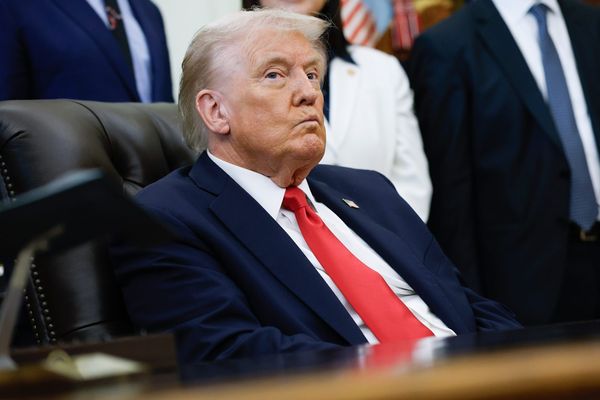
Emmanuel Macron has warned the French they are facing sacrifices and what he called the “end of abundance”, at his government’s first cabinet meeting after the summer holidays.
The president, speaking before ministers at the Élysée, said the country was at a “tipping point” and faced a difficult winter and a new era of instability caused by climate change and Russia’s invasion of Ukraine.
His cautionary and sombre speech, which was immediately criticised by opponents as ill-judged and a snub to the country’s out-of-work and poor who had already made sacrifices, came after a summer of extreme temperatures, widespread wildfires, drought and storms.
Macron said France and the French felt they were living through a series of crises, “each worse than the last”.
“What we are currently living through is a kind of major tipping point or a great upheaval … we are living the end of what could have seemed an era of abundance … the end of the abundance of products of technologies that seemed always available … the end of the abundance of land and materials including water,” he said.
He thanked “our firemen, elected representatives and farmers who faced the fires and drought”.
Macron added that France, Europe and the world had perhaps been too “insouciant” about threats to democracy and human rights and the “rise of illiberal regimes and strengthening of authoritarian regimes”.
“This overview that I’m giving, the end of abundance, the end of insouciance, the end of assumptions – it’s ultimately a tipping point that we are going through that can lead our citizens to feel a lot of anxiety. Faced with this, we have a duty, duties, the first of which is to speak frankly and clearly without doom-mongering,” he said.

Philippe Martinez, the secretary general of the powerful CGT union, said Macron’s comments were “misplaced” and that many in France had never known abundance.
“When we talk about the end of abundance, I think of the millions of unemployed, the millions of those in a precarious situation. For many French people, times are already hard, sacrifices have already been made,” Martinez said.
The president’s warnings came as it was revealed that the dividends paid out by major French companies reached a record €44bn in the second quarter of 2022, as a result of what were described as exceptional profits in 2021. The economic newspaper Les Echos said the dividend payout was almost 33% up on the previous year and was the result of a post-Covid economic catchup.
Macron, who was re-elected for a second five-year term in April but lost his parliamentary majority in the subsequent general election, and his government are facing a rocky rentrée, the traditional September return to work and school after the long summer break in France.
After months of successive election campaigns, his newly appointed government had little time to establish itself before the holidays, putting this year’s return to parliamentary business under particular scrutiny.
The president, who leaves for a three-day visit to Algeria on Thursday, has told ministers that measures to tackle the climate emergency and its consequences as well as those focusing on renewable energies must be a priority this autumn, and he has urged a “general mobilisation” to address it.
The prime minister, Élisabeth Borne, is expected to give details on new measures at the annual conference held by Medef, the French employers’ federation, next Monday.
Earlier this month, while attending a commemoration ceremony for Operation Dragoon, the allied invasion of Provence in 1944, Macron said this autumn and winter would be a difficult one for the country, with a risk of energy shortages and high prices as a result of Russia’s war on Ukraine, and this was “the price to pay for freedom”.
Critics have accused the president of giving no clear goal for his second and final mandate. His government will need to make alliances to ensure its 2023 budget passes through a divided parliament, another rentrée priority. The government also faces a battle to pass election manifesto measures including changes to the unemployment benefit system and pensions that will put it on a direct collision course with the left and unions, who are vehemently opposed to the proposals.
Bernard Sananès, of the opinion pollsters Elabe, said Macron was preparing the French for bad times. “It’s a kind of political anticipation. If things really become difficult, the president needs to have called it beforehand to avoid giving the impression that events have taken him and his government by surprise,” Sananès told AFP.
The leader of the French Communist party, Fabien Roussel, a presidential candidate earlier this year, expressed astonishment at Macron’s speech. “Unbelievable! It’s as if the French have had no worries and been over-indulging themselves. We have 10 million poor in France because of President Macron’s carelessness and the predatory behaviour of the rich,” Roussel tweeted.







